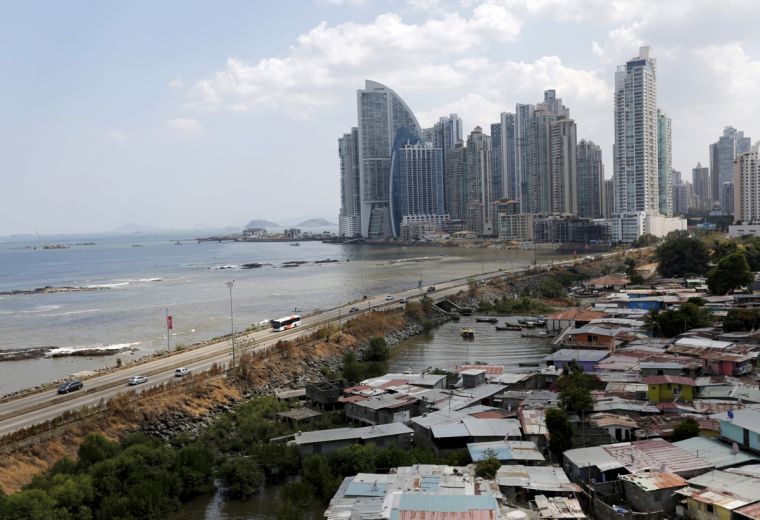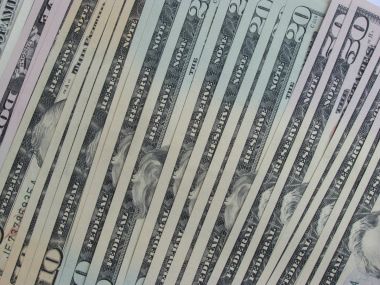Panama Papers: Avoiding tax isn't a private matter. It's about a decent society

This week, the world has been fascinated and appalled by the biggest single leak of information in history. The Panama Papers contain details of intricate arrangements made by the rich and powerful to avoid paying tax.
Usually a story about the technicalities of taxation wouldn't be such big news. This is different, though. It has grabbed the international news agenda and doesn't show any sign of going away. Iceland's Prime Minister has already been forced out of office over his tax affairs. Prime Minister David Cameron is on the back foot in the UK over his father's offshore investment fund. More information is coming to light all the time – who knows which public figure will be next to fall foul of the revelations?
We're fascinated by this story for two reasons. Firstly, we are intrigued when famous and powerful people do something which is perceived to be wrong. It's the same when a celebrity has an affair, commits a crime or says something offensive. Even though the avoidance of tax revealed here is technically legal, to many ordinary people, it seems to be 'wrong'.
We're therefore sucked into a story which shows not only politicians, but sports stars, movie directors, members of the Royal family, and a motley crew of hangers-on behaving badly. The tax avoidance may be legal, but we see it as yet another example of the excess of the rich and famous.
The second reason this story is so popular is much more important than celebrity fascination, though. It goes to the heart of what it means to live together as a society. At a time when many developed economies claim 'there isn't enough money' and are pursuing austerity policies and cutting public services, the thought of the rich, powerful and famous avoiding tax becomes less a technical, legal issue and much more about the ethics of how we live together.
Whenever a Christian ethic of taxation is discussed, Jesus' words in Matthew 22 are invariably quoted. "Give back to Caesar what is Caesar's, and to God what is God's" is a good starting place for discussion. Jesus is clearly suggesting that it's proper to pay taxes (this passage is also about far more than just taxes, of course). But the context into which Jesus spoke those words was completely different to today's world.
The Roman occupiers demanded payment from the Jewish people, while the Temple taxes had to be paid as well. This was a situation where an exploited and occupied people were obliged to pay taxes to the Emperor and to the Temple authorities – both of whom exercised power over ordinary people. In our contemporary, western democracies, tax plays a different role.
We're not powerless, occupied people. In theory, we have a say over our own affairs. We are governed not by the military might of the Romans but by our own representatives. This means taxation isn't a tool of a repressive state – it's a means to an end, and the end is governing ourselves and building a common life together.
This is at the heart of the outrage against the Panama Papers' revelations. Someone who avoided tax in ancient Israel would have been a resistance hero. (This is why Jesus is asked the question in the first place – should we pay the Emperor's taxes? – it's an attempt to box him in as a revolutionary, or a Roman stooge. Jesus is far too wise to be boxed in, though.)

In the US or the UK of the 21st Century, the person who avoids tax isn't a resistance hero – that person is someone who is taking away from the shared life of the community. Taxation isn't the only way we contribute to the common life, nor is it the most important, but it is a significant part of how we build a society. Education, health care, pensions, social security, transport, law enforcement and much more is only possible because of taxation.
The radical protestant Diggers of the 17th Century gave us the idea of the earth as a common treasury. Their leader Gerard Winstanley said the "Earth that is within this Creation made a Common Storehouse for all, is bought and sold, and kept in the hands of a few, whereby the great Creator is mightily dishonoured."
In other words, it's an offence against God and the created order for wealth to be accrued by a small number of people and denied to the masses. This shows why we consider the Panama Papers an offence, rather than just a distraction in the endless cycle of news. Those avoiding tax on an industrial scale may not be committing a crime, but they're rebelling against the right ordering of creation by hoarding wealth for themselves. It isn't only political radicals who feel the injustice of tax avoidance. Christian Aid's research shows conservatives are actually keen for tax havens to be shut down.
This isn't necessarily an argument for high taxes or a big state. However, for society to function, we all need to feel a part of it, and if the elite is allowed to avoid tax on an epidemic scale, then the solidarity across society is fractured. Democracy depends on rule of law – the idea that we are all subject to the same rules. A thriving society depends on us all feeling a part of it and contributing to it. What the Panama Papers reveal is that some people don't feel obliged to contribute. The rest of us are entitled to ask... Why not?











